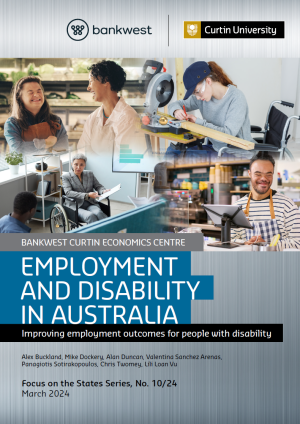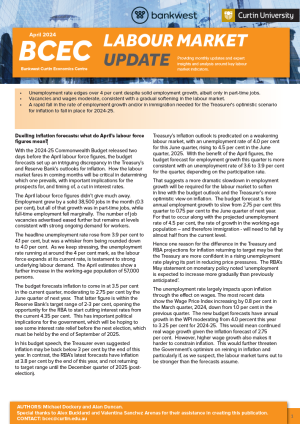Publications
Search results for
Author: Astghik MavisakalyanX
Oil and Women: A Re-examination
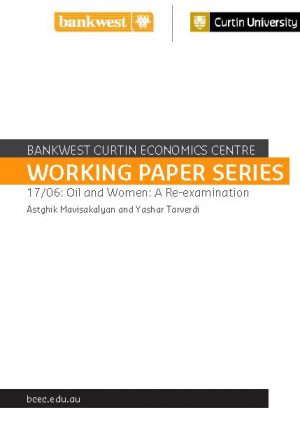 In a seminal article, Ross (2008) reports a negative correlation between oil production and women’s representation in the labour force and politics across countries. This article re-examines these relationships exploiting variations in oil endowments to address endogeneity concerns. We confirm... Read article
In a seminal article, Ross (2008) reports a negative correlation between oil production and women’s representation in the labour force and politics across countries. This article re-examines these relationships exploiting variations in oil endowments to address endogeneity concerns. We confirm... Read article
 In a seminal article, Ross (2008) reports a negative correlation between oil production and women’s representation in the labour force and politics across countries. This article re-examines these relationships exploiting variations in oil endowments to address endogeneity concerns. We confirm... Read article
In a seminal article, Ross (2008) reports a negative correlation between oil production and women’s representation in the labour force and politics across countries. This article re-examines these relationships exploiting variations in oil endowments to address endogeneity concerns. We confirm... Read article
Gender and climate change: Do female parliamentarians make a difference?
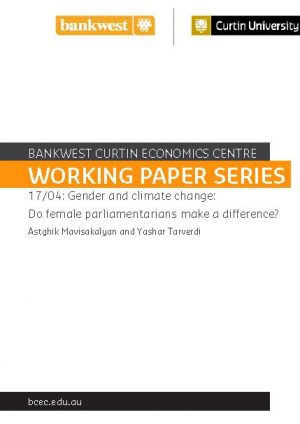 This paper investigates whether female political representation in national parliaments influences climate change policy outcomes. Based on data from a large sample of countries, we demonstrate that female representation leads countries to adopt more stringent climate change policies. We exploit... Read article
This paper investigates whether female political representation in national parliaments influences climate change policy outcomes. Based on data from a large sample of countries, we demonstrate that female representation leads countries to adopt more stringent climate change policies. We exploit... Read article
 This paper investigates whether female political representation in national parliaments influences climate change policy outcomes. Based on data from a large sample of countries, we demonstrate that female representation leads countries to adopt more stringent climate change policies. We exploit... Read article
This paper investigates whether female political representation in national parliaments influences climate change policy outcomes. Based on data from a large sample of countries, we demonstrate that female representation leads countries to adopt more stringent climate change policies. We exploit... Read article
Linguistic Structures and Economic Outcomes
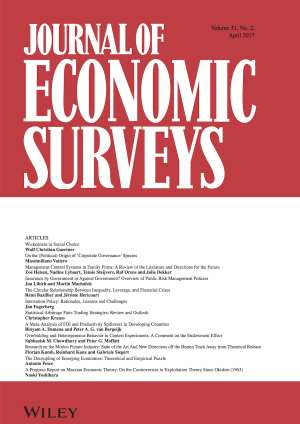 Linguistic structures have recently started to attract attention from economists as determinants of economic phenomena. This paper provides the first comprehensive review of this nascent literature and its achievements so far. First, we explore the complex connections between language, culture,... Read article
Linguistic structures have recently started to attract attention from economists as determinants of economic phenomena. This paper provides the first comprehensive review of this nascent literature and its achievements so far. First, we explore the complex connections between language, culture,... Read article
 Linguistic structures have recently started to attract attention from economists as determinants of economic phenomena. This paper provides the first comprehensive review of this nascent literature and its achievements so far. First, we explore the complex connections between language, culture,... Read article
Linguistic structures have recently started to attract attention from economists as determinants of economic phenomena. This paper provides the first comprehensive review of this nascent literature and its achievements so far. First, we explore the complex connections between language, culture,... Read article
Talking in the Present, Caring for the Future: Language and Environment
 This paper identifies a new source that explains environmental behaviour: the presence of future tense marking in language. We predict that languages that grammatically mark the future affect speakers’ intertemporal preferences and thereby reduce their willingness to address climate change.... Read article
This paper identifies a new source that explains environmental behaviour: the presence of future tense marking in language. We predict that languages that grammatically mark the future affect speakers’ intertemporal preferences and thereby reduce their willingness to address climate change.... Read article
 This paper identifies a new source that explains environmental behaviour: the presence of future tense marking in language. We predict that languages that grammatically mark the future affect speakers’ intertemporal preferences and thereby reduce their willingness to address climate change.... Read article
This paper identifies a new source that explains environmental behaviour: the presence of future tense marking in language. We predict that languages that grammatically mark the future affect speakers’ intertemporal preferences and thereby reduce their willingness to address climate change.... Read article
Linguistic Relativity and Economics
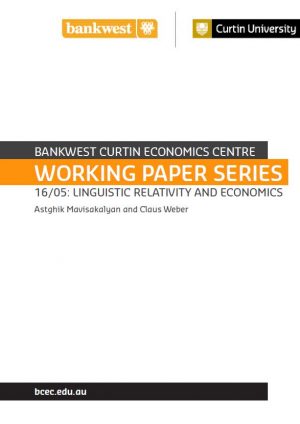 The theory of linguistic relativity—the idea that our language influences our thinking—has a long history in the humanities. Speakers of different languages may systematically think and behave differently. This phenomenon has only recently attracted attention from economists. This paper provides... Read article
The theory of linguistic relativity—the idea that our language influences our thinking—has a long history in the humanities. Speakers of different languages may systematically think and behave differently. This phenomenon has only recently attracted attention from economists. This paper provides... Read article
 The theory of linguistic relativity—the idea that our language influences our thinking—has a long history in the humanities. Speakers of different languages may systematically think and behave differently. This phenomenon has only recently attracted attention from economists. This paper provides... Read article
The theory of linguistic relativity—the idea that our language influences our thinking—has a long history in the humanities. Speakers of different languages may systematically think and behave differently. This phenomenon has only recently attracted attention from economists. This paper provides... Read article
Looks matter: Attractiveness and Employment in the Former Soviet Union
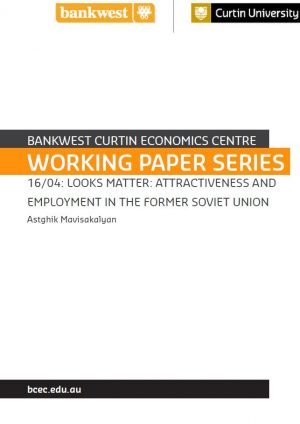 The rigid Soviet policy of full employment ensured employment for all able-bodied population. By removing this policy, the collapse of the system has made discrimination less costly. Has it also become prevalent? This paper studies the labour market discrimination on... Read article
The rigid Soviet policy of full employment ensured employment for all able-bodied population. By removing this policy, the collapse of the system has made discrimination less costly. Has it also become prevalent? This paper studies the labour market discrimination on... Read article
 The rigid Soviet policy of full employment ensured employment for all able-bodied population. By removing this policy, the collapse of the system has made discrimination less costly. Has it also become prevalent? This paper studies the labour market discrimination on... Read article
The rigid Soviet policy of full employment ensured employment for all able-bodied population. By removing this policy, the collapse of the system has made discrimination less costly. Has it also become prevalent? This paper studies the labour market discrimination on... Read article
Women in the Boardroom and Fraud: Evidence from Australia
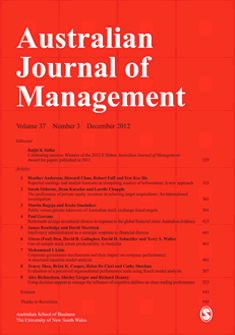 We examine the relationship between women’s representation on corporate boards and fraud. Drawing on a discussion of existing studies, we hypothesise that increasing women’s representation on boards can help mitigate fraud. We provide validation to our conjecture through an empirical... Read article
We examine the relationship between women’s representation on corporate boards and fraud. Drawing on a discussion of existing studies, we hypothesise that increasing women’s representation on boards can help mitigate fraud. We provide validation to our conjecture through an empirical... Read article
 We examine the relationship between women’s representation on corporate boards and fraud. Drawing on a discussion of existing studies, we hypothesise that increasing women’s representation on boards can help mitigate fraud. We provide validation to our conjecture through an empirical... Read article
We examine the relationship between women’s representation on corporate boards and fraud. Drawing on a discussion of existing studies, we hypothesise that increasing women’s representation on boards can help mitigate fraud. We provide validation to our conjecture through an empirical... Read article
Self-assessed versus statistical evidence of labour market discrimination
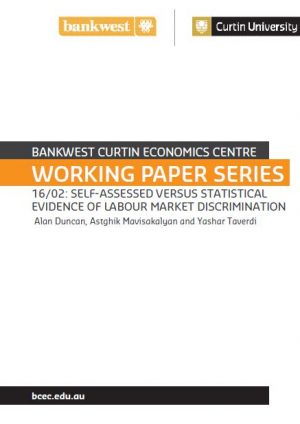 We assess the relative importance of statistical residual-based measures of discrimination in determining indigenous Australians’ perceptions of discrimination in the labour market. We find that statistical measures are largely unrelated to discrimination reports among males and negatively related to discrimination... Read article
We assess the relative importance of statistical residual-based measures of discrimination in determining indigenous Australians’ perceptions of discrimination in the labour market. We find that statistical measures are largely unrelated to discrimination reports among males and negatively related to discrimination... Read article
 We assess the relative importance of statistical residual-based measures of discrimination in determining indigenous Australians’ perceptions of discrimination in the labour market. We find that statistical measures are largely unrelated to discrimination reports among males and negatively related to discrimination... Read article
We assess the relative importance of statistical residual-based measures of discrimination in determining indigenous Australians’ perceptions of discrimination in the labour market. We find that statistical measures are largely unrelated to discrimination reports among males and negatively related to discrimination... Read article
The labor market return to academic fraud
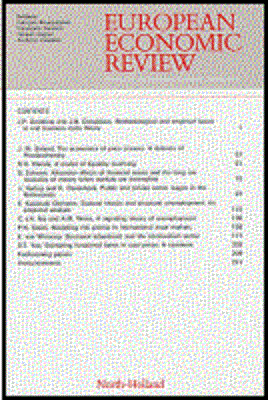 Academic fraud by undergraduate students is pervasive, but should it be taken seriously as an economic problem? Our research suggests so. Using a unique data set from the Caucasus, we estimate a large positive effect of academic fraud on the... Read article
Academic fraud by undergraduate students is pervasive, but should it be taken seriously as an economic problem? Our research suggests so. Using a unique data set from the Caucasus, we estimate a large positive effect of academic fraud on the... Read article
 Academic fraud by undergraduate students is pervasive, but should it be taken seriously as an economic problem? Our research suggests so. Using a unique data set from the Caucasus, we estimate a large positive effect of academic fraud on the... Read article
Academic fraud by undergraduate students is pervasive, but should it be taken seriously as an economic problem? Our research suggests so. Using a unique data set from the Caucasus, we estimate a large positive effect of academic fraud on the... Read article
Is headspace making a difference to young people’s lives?
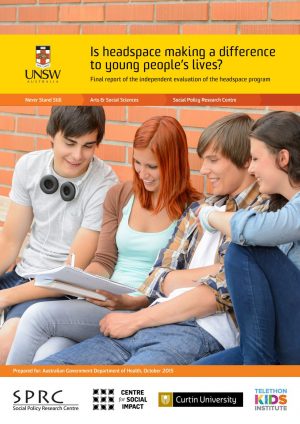 headspace aims to improve the mental health and social and emotional wellbeing of young people in Australia through the provision of evidence-based, integrated, youth-centred and holistic services. In January 2013, the Australian Government Department of Health (DoH) commissioned a consortium... Read article
headspace aims to improve the mental health and social and emotional wellbeing of young people in Australia through the provision of evidence-based, integrated, youth-centred and holistic services. In January 2013, the Australian Government Department of Health (DoH) commissioned a consortium... Read article
 headspace aims to improve the mental health and social and emotional wellbeing of young people in Australia through the provision of evidence-based, integrated, youth-centred and holistic services. In January 2013, the Australian Government Department of Health (DoH) commissioned a consortium... Read article
headspace aims to improve the mental health and social and emotional wellbeing of young people in Australia through the provision of evidence-based, integrated, youth-centred and holistic services. In January 2013, the Australian Government Department of Health (DoH) commissioned a consortium... Read article
Constitutions and the political agency of women
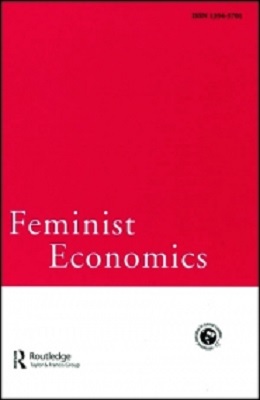 The underrepresentation of women in parliaments worldwide warrants attention to discern underlying sources. This study examines one potential source: the countries’ constitutions. Based on a large cross-country dataset from 2011, the study demonstrates that women’s representation in parliament is larger... Read article
The underrepresentation of women in parliaments worldwide warrants attention to discern underlying sources. This study examines one potential source: the countries’ constitutions. Based on a large cross-country dataset from 2011, the study demonstrates that women’s representation in parliament is larger... Read article
 The underrepresentation of women in parliaments worldwide warrants attention to discern underlying sources. This study examines one potential source: the countries’ constitutions. Based on a large cross-country dataset from 2011, the study demonstrates that women’s representation in parliament is larger... Read article
The underrepresentation of women in parliaments worldwide warrants attention to discern underlying sources. This study examines one potential source: the countries’ constitutions. Based on a large cross-country dataset from 2011, the study demonstrates that women’s representation in parliament is larger... Read article
Russian language skills and employment in the Former Soviet Union
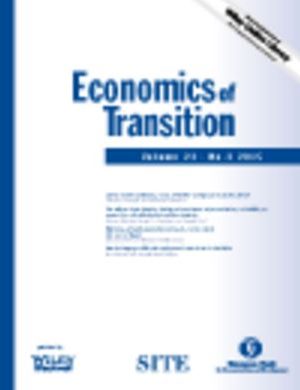 During the Soviet era, proficiency in the Russian language was often a ticket to attractive employment opportunities in the member republics. Does it still contribute to securing employment in the former Soviet republics after two decades of transition? Using data... Read article
During the Soviet era, proficiency in the Russian language was often a ticket to attractive employment opportunities in the member republics. Does it still contribute to securing employment in the former Soviet republics after two decades of transition? Using data... Read article
 During the Soviet era, proficiency in the Russian language was often a ticket to attractive employment opportunities in the member republics. Does it still contribute to securing employment in the former Soviet republics after two decades of transition? Using data... Read article
During the Soviet era, proficiency in the Russian language was often a ticket to attractive employment opportunities in the member republics. Does it still contribute to securing employment in the former Soviet republics after two decades of transition? Using data... Read article

